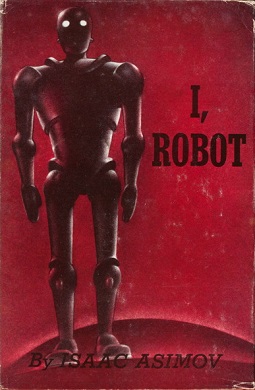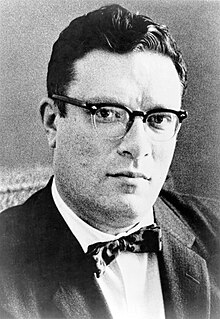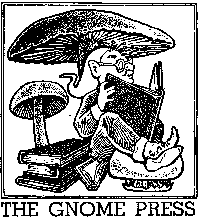See also
| Look up fundie in Wiktionary, the free dictionary. |
Fundie or fundy (plural fundies) is a pejorative slang abbreviation used to refer to religious fundamentalists of any religion or denomination, although it is primarily directed towards fundamentalist Christians. [1] The term is used most commonly by those opposed to the Christian right movement. The term is often associated with religiously motivated conservative moral beliefs, especially those regarding social issues.
In financial markets, it is also used as a slang abbreviation for "fundamentals" which are the underlying driving forces and metrics that drive the success of a business (in equities trading) or, in the case of commodities trading, these would be the underlying supply and demand dynamics. Fundies or fundamentals is used as a term to describe the type of analysis being undertaken or the perspective of a particular viewpoint to distinguish usually from technical analysis, which is the analysis of pure price and volume activity from markets.
In etymological terms, "fundie" is an example of a mutated contraction resulting from relaxed pronunciation, where the original word (in this case fundamentalist) is shortened and slightly altered. "Fundie" is a diminutive made by changing to -ie ending, like in hypocorism (diminutives of given names) and many diminutives in Australian English.
There is no recorded first use of the term, though its appearance in the American English vocabulary coincided with the rise of Christian Right politics in the 1970s. An early use of the term "fundie" was Isaac Asimov's short story "Evidence", first published in book form in the collection, I, Robot , published in 1950. [2]
| Look up fundie in Wiktionary, the free dictionary. |
Fundamentalism usually has a religious connotation that indicates unwavering attachment to a set of irreducible beliefs. However, fundamentalism has come to be applied to a tendency among certain groups – mainly, although not exclusively, in religion – that is characterized by a markedly strict literalism as it is applied to certain specific scriptures, dogmas, or ideologies, and a strong sense of the importance of maintaining ingroup and outgroup distinctions, leading to an emphasis on purity and the desire to return to a previous ideal from which advocates believe members have strayed. Rejection of diversity of opinion as applied to these established "fundamentals" and their accepted interpretation within the group often results from this tendency.

I, Robot is a fixup novel of science fiction short stories or essays by American writer Isaac Asimov. The stories originally appeared in the American magazines Super Science Stories and Astounding Science Fiction between 1940 and 1950 and were then compiled into a book for stand-alone publication by Gnome Press in 1950, in an initial edition of 5,000 copies. The stories are woven together by a framing narrative in which the fictional Dr. Susan Calvin tells each story to a reporter in the 21st century. Although the stories can be read separately, they share a theme of the interaction of humans, robots, and morality, and when combined they tell a larger story of Asimov's fictional history of robotics.

Isaac Asimov was an American writer and professor of biochemistry at Boston University. He was known for his works of science fiction and popular science. Asimov was a prolific writer who wrote or edited more than 500 books and an estimated 90,000 letters and postcards.

Internet slang refers to various kinds of slang used by different people on the Internet. An example of Internet slang is "LOL" meaning "laugh out loud". It is difficult to provide a standardized definition of Internet slang due to the constant changes made to its nature. However, it can be understood to be any type of slang that Internet users have popularized, and in many cases, have coined. Such terms often originate with the purpose of saving keystrokes or to compensate for small character limits. Many people use the same abbreviations in texting and instant messaging, and social networking websites. Acronyms, keyboard symbols and abbreviations are common types of Internet slang. New dialects of slang, such as leet or Lolspeak, develop as ingroup internet memes rather than time savers. Many people use internet slang not only on the Internet but also face-to-face.

The Foundation series is a science fiction book series written by American author Isaac Asimov. First collected in 1951, for thirty years the series was a trilogy: Foundation, Foundation and Empire, and Second Foundation. It won the one-time Hugo Award for "Best All-Time Series" in 1966. Asimov began adding new volumes in 1981, with two sequels: Foundation's Edge and Foundation and Earth, and two prequels: Prelude to Foundation and Forward the Foundation. The additions made reference to events in Asimov's Robot and Empire series, indicating that they were also set in the same fictional universe.

The Robot series is a series of 37 science fiction short stories and six novels by American writer Isaac Asimov, featuring positronic robots.
The Galactic Empire series is a science fiction sequence of three of Isaac Asimov's earliest novels, and extended by one short story. They are connected by their early place in his published works and chronological placement within his overarching Foundation Universe, set around the rise of Asimov's Galactic Empire, between the Robot and Foundation series to which they were linked in Asimov's later novels.

The Three Laws of Robotics are a set of rules devised by the science fiction author Isaac Asimov. The rules were introduced in his 1942 short story "Runaround", although they had been foreshadowed in a few earlier stories. The Three Laws, quoted as being from the "Handbook of Robotics, 56th Edition, 2058 A.D.", are:
Christian fundamentalism began in the late 19th and early 20th centuries among British and American Protestants as a reaction to theological liberalism and cultural modernism. Fundamentalists argued that 19th-century modernist theologians had misinterpreted or rejected certain doctrines, especially biblical inerrancy, which they considered the fundamentals of the Christian faith. Fundamentalists are almost always described as having a literal interpretation of the Bible. A few scholars label Catholics who reject modern theology in favor of more traditional doctrines fundamentalists. Scholars debate how much the terms "evangelical" and "fundamentalist" are synonymous. In keeping with traditional Christian doctrines concerning biblical interpretation, the role of Jesus in the Bible, and the role of the church in society, fundamentalists usually believe in a core of Christian beliefs which include the historical accuracy of the Bible and all of the events which are recorded in it as well as the Second Coming of Jesus Christ.
A neologism is a relatively recent or isolated term, word, or phrase that may be in the process of entering common use, but that has not yet been fully accepted into mainstream language. Neologisms are often driven by changes in culture and technology, . In the process of language formation, neologisms are more mature than protologisms. A word whose development stage is between that of the protologism and neologism is a prelogism.
A positronic brain is a fictional technological device, originally conceived by science fiction writer Isaac Asimov. It functions as a central processing unit (CPU) for robots, and, in some unspecified way, provides them with a form of consciousness recognizable to humans. When Asimov wrote his first robot stories in 1939 and 1940, the positron was a newly discovered particle, and so the buzz word "positronic" added a scientific connotation to the concept. Asimov's 1942 short story "Runaround" elaborates his fictional Three Laws of Robotics, which are ingrained in the positronic brains of nearly all of his robots.
"Reason" is a science fiction short story by American writer Isaac Asimov, first published in the April 1941 issue of Astounding Science Fiction and collected in I, Robot (1950), The Complete Robot (1982), and Robot Visions (1990). It is part of Asimov's Robot series, and was the second of Asimov's positronic robot stories to see publication.
"Liar!" is a science fiction short story by American writer Isaac Asimov. It first appeared in the May 1941 issue of Astounding Science Fiction and was reprinted in the collections I, Robot (1950) and The Complete Robot (1982). It was Asimov's third published positronic robot story. Although the word "robot" was introduced to the public by Czech writer Karel Čapek in his 1920 play R.U.R., Asimov's story "Liar!" contains the first recorded use of the word "robotics" according to the Oxford English Dictionary. The events of this short story are also mentioned in the novel The Robots of Dawn written by the same author.
"Mother Earth" is a science fiction novelette by American writer Isaac Asimov. It was written from September 1 to October 10, 1948, and published in the May 1949 issue of Astounding Science Fiction. It was republished in Asimov's 1972 short story collection The Early Asimov.
The first Golden Age of Science Fiction, often recognized in the United States as the period from 1938 to 1946, was an era during which the science fiction genre gained wide public attention and many classic science fiction stories were published. In the history of science fiction, the Golden Age follows the "pulp era" of the 1920s and 1930s, and precedes New Wave science fiction of the 1960s and 1970s. The 1950s are a transitional period in this scheme; however, Robert Silverberg, who came of age in the 1950s, saw that decade as the true Golden Age.

Gnome Press was an American small-press publishing company primarily known for publishing many science fiction classics. Gnome was one of the most eminent of the fan publishers of SF, producing 86 titles in its lifespan — many considered classic works of SF and Fantasy today. Gnome was important in the transitional period between Genre SF as a magazine phenomenon and its arrival in mass-market book publishing, but proved too underfunded to make the leap from fan-based publishing to the professional level. The company existed for just over a decade, ultimately failing due to inability to compete with major publishers who also started to publish science fiction. In its heyday, Gnome published many of the major SF authors, and in some cases, as with Robert E. Howard's Conan series and Isaac Asimov's Foundation series, was responsible for the manner in which their stories were collected into book form.

In finance, an electronic trading platform also known as an online trading platform, is a computer software program that can be used to place orders for financial products over a network with a financial intermediary. Various financial products can be traded by the trading platform, over a communication network with a financial intermediary or directly between the participants or members of the trading platform. This includes products such as stocks, bonds, currencies, commodities, derivatives and others, with a financial intermediary, such as brokers, market makers, Investment banks or stock exchanges. Such platforms allow electronic trading to be carried out by users from any location and are in contrast to traditional floor trading using open outcry and telephone based trading. Sometimes the term trading platform is also used in reference to the trading software alone.
Regulation of algorithms, or algorithmic regulation, is the creation of laws, rules and public sector policies for promotion and regulation of algorithms, particularly in artificial intelligence and machine learning. For the subset of AI algorithms, the term regulation of artificial intelligence is used. The regulatory and policy landscape for artificial intelligence (AI) is an emerging issue in jurisdictions globally, including in the European Union. Regulation of AI is considered necessary to both encourage AI and manage associated risks, but challenging. Another emerging topic is the regulation of blockchain algorithms and is mentioned alongside with regulation of AI algorithms. Many countries have enacted regulations of high frequency trades, which is shifting due to technological progress into the realm of AI algorithms.